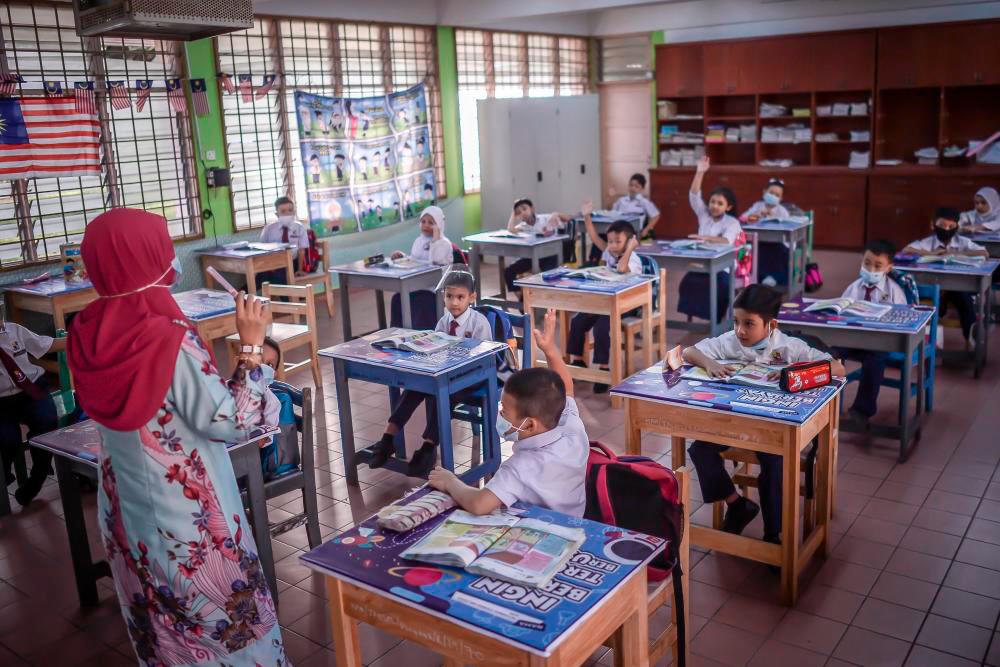CANING of children is not uncommon in Malaysian society since it is frequently justified as a form of discipline, particularly when not only parents but also teachers use the same approach as a form of punishment.
Regulation 5 of the Education Ordinance 1957 states that the headmaster, which includes the teachers under his supervision, has the authority to punish students as long as it is not abusive.
According to social theorist Michael Donnelly and family violence expert Murray A. Straus, corporal punishment, which includes caning, is a form of physical violence that is used to correct or regulate the behavior of children. The objective is to cause the child pain but not injury in order to correct the child’s behaviour. The phrase “pain but not injury” distinguishes physical abuse and corporal punishment. Pinching, twisting the ears and other similar actions are examples of physical abuse.
Due to the culture and practice of corporal punishment, the subject of caning children is starting to come to light as society progresses, which has aroused concern among some parents. In this regard, the Women, Family and Community Development Ministry, citing the Convention on the Rights of the Child and the Children’s Act 2001, has recommended criminalising physical punishment, such as caning.
French sociologist David Emile Durkheim believes that education is a crucial medium for instilling social ideals in children’s minds, in order for them to mature into adults with high social values. As such, school’s disciplinary rules should be strictly adhered to. This will enable students to develop self-discipline as well as the ability to refrain from engaging in illegal behaviour, even if it means being caned.
In addition, he opined that children who broke the rules should be disciplined so that they can learn from their mistakes and develop more self-control.
German philosopher Immanuel Kant, indirectly supporting the view, said it is permissible to use physical punishment on children as long as it does not cause harm or injury. Furthermore, Kant emphasises the significance of education in order to instil a sense of purpose in young people.
On the other hand, English philosopher and physician John Locke stressed that corporal punishment, including caning, should not be permitted because it has the potential to encourage aggression and does not provide a quality education. However, he added that there are exceptions to the rule that allow parents to discipline and punish their children as long as the punishment does not inflict physical harm. Locke is of the view that educating children should not be a chore but rather a pleasant experience.
English philosopher John Stuart Mill agreed with Locke that parents have a duty to raise their children. Mill believes that the major objective of education is to make their lives better and train children so that they can contribute to society in the future.
However, Mill maintained that caning and other forms of physical punishment are not an effective method of educating children. This may be because they would lead children to think that using violence is permissible to solve problems, and there is a high probability of them engaging the same form of punishment on their children.
Mill also believes that the government should intervene by imposing fines on parents who physically abuse their children to prevent further abuse.
Durkheim and Locke’s theory establishes a balance between the punishment meted out to children and the consequences of their disobedience, thus, not impeding moral and self development.
Durkheim echoes the argument of sensitivity but reiterates the necessity of caning children in order to form a quality society, a view shared by Kant, while Locke, who has a naturalistic perspective, feels parents have a responsibility to educate and shape the character of their children, a point partly supported by Mills.
Succintly, it can be argued that the practice of caning children in Malaysia is consistent with naturalist and sociological jurisprudence, so long as it is carried out with the aim to teach children and not cause them physical harm.
Ainur Sofea Talib is a third-year law student at Universiti Kebangsaan Malaysia and Dr Nabeel Mahdi Althabhawi is a lecturer at the law faculty. Comments: letters@thesundaily.com









